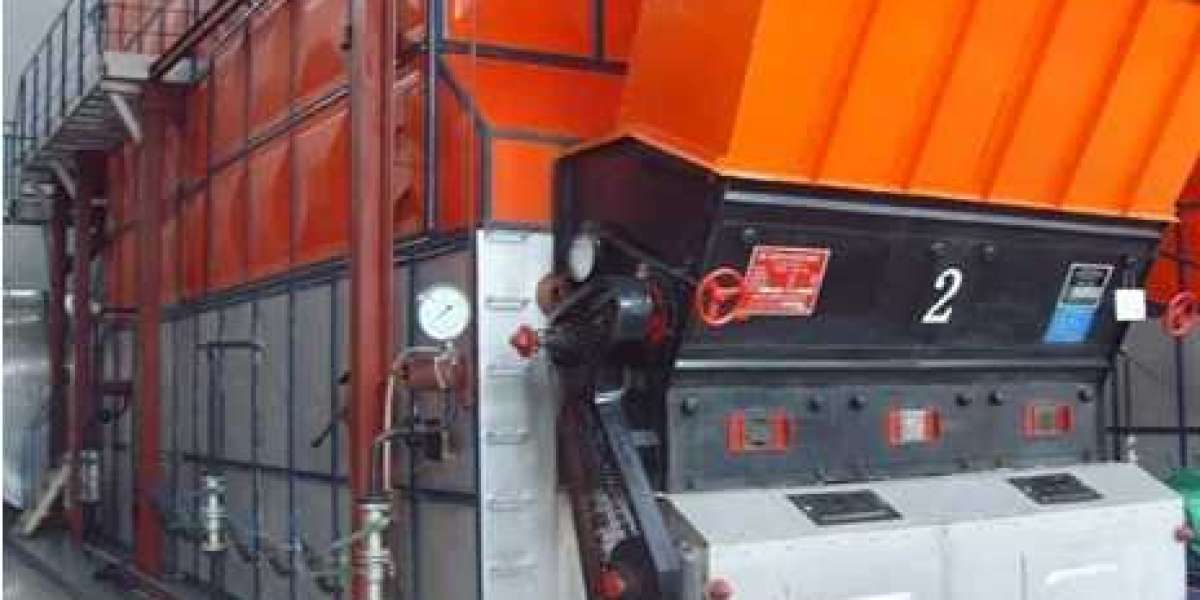As the world continues to grapple with the challenges of climate change, renewable energy sources are becoming increasingly important in meeting energy demands while reducing greenhouse gas emissions. Biomass boilers have emerged as a promising technology in this regard, offering a renewable and sustainable alternative to traditional fossil fuel-based heating systems. In this article, we will explore the role of biomass boilers in meeting renewable energy targets, examining their benefits, challenges, and potential for widespread adoption.
How biomass boilers work
Biomass boilers are an innovative and sustainable solution for generating heat and hot water. But how do they actually work? Let’s dive into the fascinating world of biomass boiler technology.
At its core, a biomass boiler uses organic materials such as wood pellets, logs or agricultural waste to generate heat. This renewable fuel is packed into storage containers called hoppers. From there, it is automatically fed into the combustion chamber, where controlled combustion occurs.
The heat generated by this process is then transferred to a heating system, which can be used to provide warmth to a home or other building. In some cases, excess heat can also be converted into electricity through a combined heat and power (CHP) system.
One of the key components of a biomass boiler is the flue gas purification system. It ensures that any harmful emissions produced during the combustion process are minimized before being released into the atmosphere. This makes the biomass boiler not only environmentally friendly, but also compliant with strict air quality standards.
Modern biomass boilers have come a long way in terms of efficiency. They use advanced technologies such as automatic ignition systems and trim control to optimize performance and reduce fuel consumption.
Biomass boilers offer a promising alternative to traditional fossil fuel-based heating systems. By using natural resources in a sustainable way, we can significantly reduce our carbon footprint while still enjoying a comfortable living space.

Biomass Boiler Benefits for Renewable Energy
Biomass boilers harness the power of organic materials to produce heat and electricity, playing a vital role in achieving renewable energy goals. These innovative systems bring multiple benefits to sustainable energy production.
Biomass boilers utilize renewable resources such as wood pellets, agricultural waste and specialty energy crops. Unlike fossil fuels, which contribute to greenhouse gas emissions, biomass is considered carbon neutral because the carbon dioxide released during combustion is reabsorbed by the growth of new plants. This means that using biomass boilers reduces our reliance on limited fossil fuel reserves while minimizing environmental impact.
Biomass boilers are versatile and can be used in a variety of applications. They can provide heating and hot water to residential or commercial buildings, or process heat to industries such as manufacturing or agriculture. By harnessing such abundant renewable energy, we can significantly reduce our reliance on non-renewable alternatives.
In addition, biomass boilers help support the local economy by creating jobs in the forestry and agricultural sectors. The growing and harvesting of ingredients contributes to rural development while promoting sustainable land management practices.
Additionally, investing in biomass boiler technology can result in long-term cost savings for consumers. While initial installation costs may be higher than traditional heating systems, ongoing operating expenses tend to be lower because biomass fuel sources cost less than fossil fuels.
Biomass boilers offer numerous benefits for renewable energy production, including reduced greenhouse gas emissions and versatility in application use.

Current Use of Biomass Boilers
Biomass boilers are currently being used in a variety of settings to meet renewable energy targets. One area where they are gaining traction is in the residential sector. Homeowners are increasingly turning to biomass boilers as a sustainable and cost-effective alternative for heating their homes.
In addition to residential use, biomass boilers are also being utilized in commercial and industrial applications. Many businesses and organizations recognize the environmental benefits of using biomass as a fuel source and are incorporating these boilers into their operations. From hotels to schools, hospitals to manufacturing plants, the versatility of biomass boilers allows them to be integrated into various sectors.
Another key area where biomass boilers are being utilized is in district heating systems. These systems provide heat and hot water for multiple buildings or an entire community by utilizing a central boiler plant fueled by biomass. District heating networks offer numerous advantages, including reduced carbon emissions and increased energy efficiency.
The current use of biomass boilers spans across different sectors and has been driven by both environmental concerns and government initiatives promoting renewable energy sources. As more individuals and organizations recognize the benefits of this technology, it is likely that we will continue to see an increase in its adoption around the world.
Conclusion
In this blog post, we have explored the role of biomass boilers in meeting renewable energy targets. These innovative heating systems play a crucial part in transitioning to a more sustainable future.
The operation of biomass boilers is relatively straightforward. Through combustion or gasification processes, the organic matter is converted into heat that can be used for various purposes including heating homes, businesses, or generating electricity. The versatility of biomass boilers makes them an attractive option for both residential and commercial applications.
Implementing biomass boiler systems does come with its challenges. One major obstacle is ensuring a consistent supply of fuel sources. However, advancements in technology are improving efficiency and expanding the range of suitable fuels that can be used.








